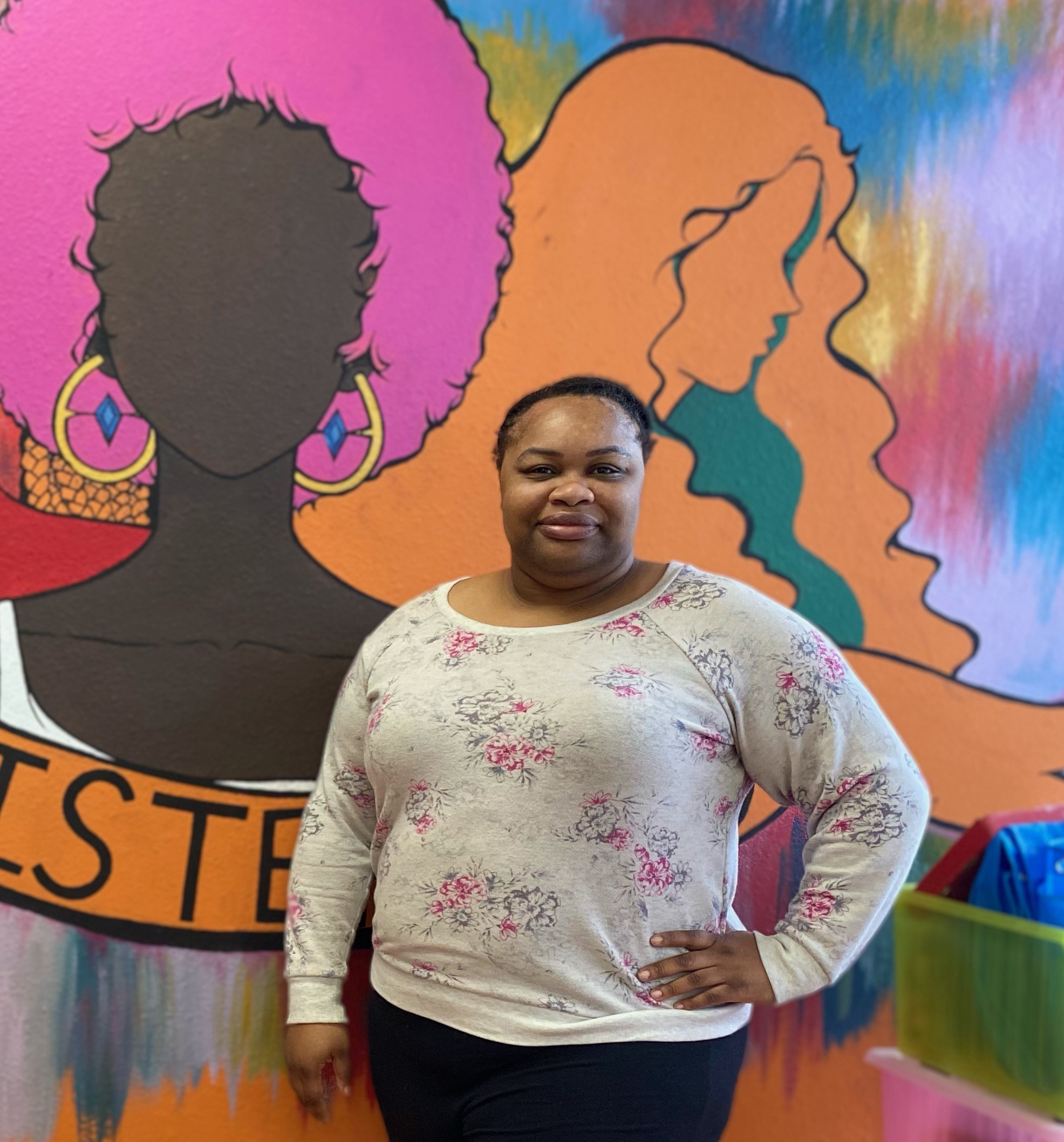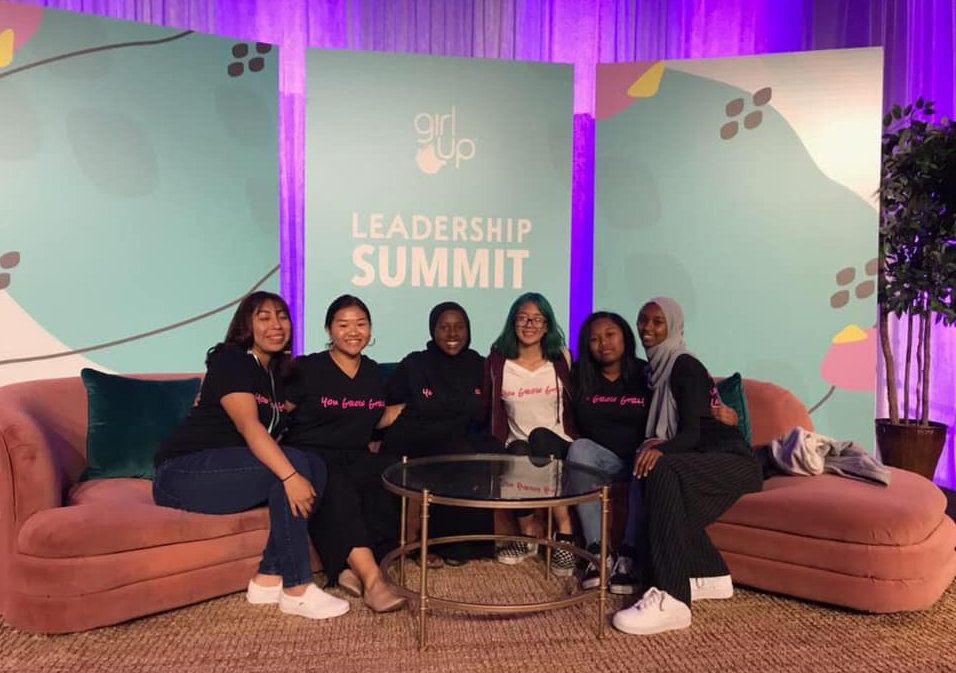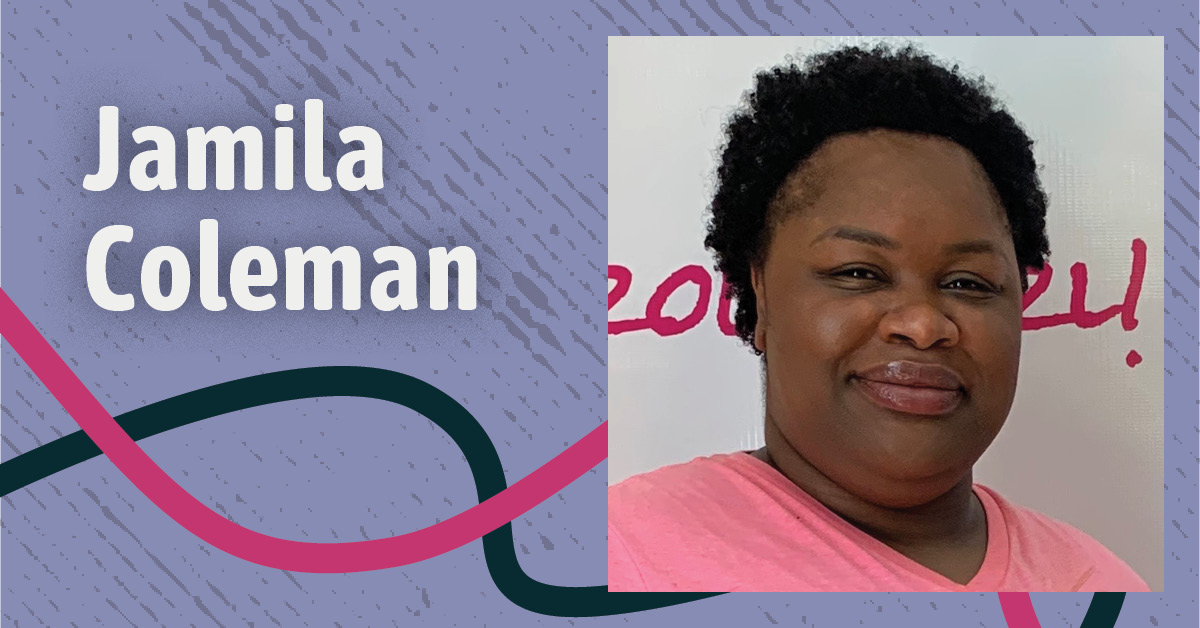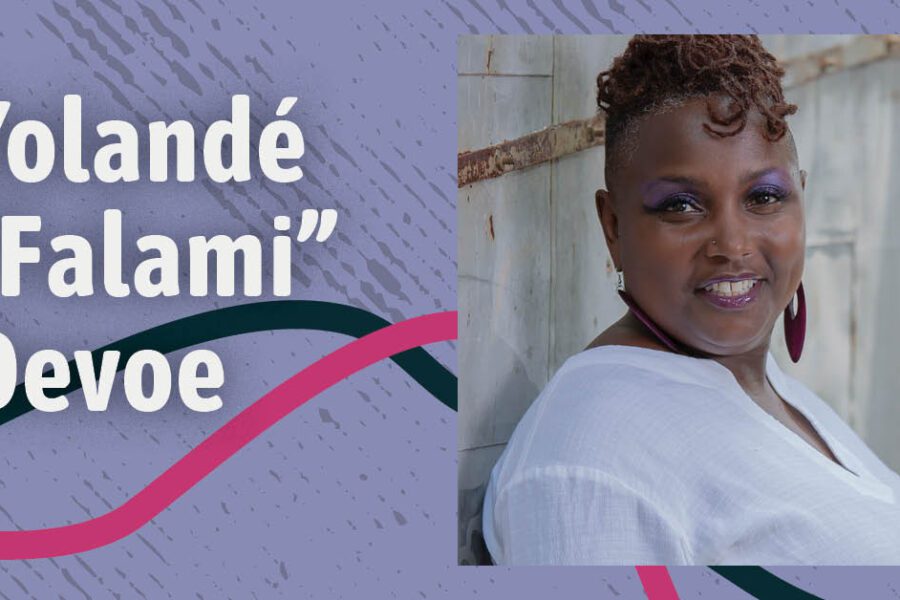Eighteen years ago, Jamila Coleman envisioned creating a safe space for Black and brown girls impacted by foster care. Having experienced the foster care system herself, Jamila was all too aware of the needs of girls and young women in that system to express themselves, seek support, find empowerment, and work through barriers such as fear, low self-esteem, and difficulty trusting others. There weren’t and still aren’t many resources available to uplift Black and brown girls and help them build confidence and amplify leadership skills.
Jamila decided to found a nonprofit called You Grow Girl! that provides this support while generating a culture of sisterhood. “This is a cycle. We’re all connected,” Coleman says. “I’m responsible for my sister’s progress.” The idea of accountability and truly being a sister’s keeper helps strengthen the bond the sisters share.

On a recent chilly day with gray skies and freezing rain pelting the windows, I had the opportunity to chat with Jamila via Zoom. Jamila is now the Executive Director of You Grow Girl!—a family venture with Jamila’s daughter, mom, and sister at the helm that focuses on inspiring girls and young women of King County, Washington through mentorship, counseling, leadership and more. She also is a student in Antioch’s Masters in Individualized Studies program, where she is focusing on the study of social justice.
Jamila’s big smile and sister-like energy hugged me from the screen, like a mug of velvety-rich hot chocolate. I was inspired to uncover who this woman was. What moved her? What was her authentic self? To unearth this mystery, we had to start from the beginning.
An Appointment with Grace
Born in Oakland, California, Jamila moved to Seattle when she was five. Two years later, she received her introduction into the foster care system. Jamila was separated from her two older siblings and placed with a foster parent: Mrs. Gracie. This appointment would end up changing the trajectory of Jamila’s life. “My mom, my foster mom Grace, really was there,” Jamila says. “She stood by me. She still is to this day. I mean, I was a horrible teenager…. But she was my ride-or-die.”
The grief and confusion of being separated from one’s father and siblings was added to natural growing pains and the difficulty adjusting to a new home life, new school and new peers. Trying to figure out one’s place in this constantly changing world was difficult, a rapid whirlwind of emotions, but Jamila persevered.
Jamila points to Mrs. Gracie, a social services worker and domestic violence advocate, as her saving grace—an “old-school Black mom,” she says. That is, a strict, no-nonsense, selfless mom, who loves hard and loves unconditionally but won’t hesitate to lay hands if and when needed. “That’s my mama,” Jamila says. “I am here because of her. She definitely gave me the space to grow into and figure out what I wanted to do.”
Mrs. Gracie—who now is partially retired—has always been a role model for Jamila, allowing her to tag along while Mrs. Gracie served in her community. With early experiences feeding women at the domestic violence shelter and other selfless acts, Jamila says she was “pulled into this kind of work.” She had no other choice but to accept the call and step into the role of servanthood. You Grow Girl! became the vehicle in which Jamila could serve an often ignored population in her community.
“I’m responsible for my sister’s progress.”
You Grow Girl! is a means to an end for Black and brown girls ages 8-24 who reside in Washington State and are affected by foster care (though it tries to be inclusive to all who need its services). The nonprofit empowers its “sisters” (the label “participants” is never used) to become their authentic selves—confident, secure, and self-sufficient leaders and contributors to society, who actively engage with the tools needed to reach “sustainable success.” The sisters of You Grow Girl! are supported and surrounded by allies who inspire them to break through barriers that hinder their growth and their potential to be great.
Although Jamila is the Executive Director, she’s also a student. The sisters have taught Jamila how to trust more and not react so much. “They school me every day,” Jamila adds. “We check each other. In love.” Jamila admits that trusting others to help run her nonprofit has been hard, an experience she wasn’t always used to. “This is my second baby,” she says. “I was a one-woman show, but you have to trust in order for the organization to sustain and grow. You have to trust and delegate.” With the tools Jamila and her staff arm the sisters with, it is only natural that they want to implement what they’ve learned. The sisters share their ideas with Jamila, and they are passionate and well-informed.

Jamila has relinquished the reins a bit to allow for the growth and development of the sisters and their ideas, as long as those ideas align with the mission of You Grow Girl! Instead of saying no flat out, she ponders ideas and suggestions, analyzing the various outcomes from different angles. “Even though I created this organization, and I have set some non-negotiable goals of how things are run, I’m open to trying out ideas as long as it’s within the mission, doesn’t cause harm, or cost a lot of money!”
At You Grow Girl! trust flows in all directions, between the team, allies, and sisters, producing a culture that is conducive for growth. As Jamila says, “We’re here to support you, amplify your natural leadership abilities, and create space for you at tables where if you can’t pull up your own chair, I’ll pull up with the whole van and we roll up.”
“Be your own creator of your educational journey.”
Beyond running the non-profit, Jamila is a full-time student at Antioch University Online. She is a degree candidate in the Masters in Individualized Studies (IMA) graduate program. Her coursework includes a specialization in Social Justice Counseling that ties seamlessly into Jamila’s personal and professional values, including her work with You Grow Girl!
Jamila admits that Art Therapy first piqued her interest in Antioch. And through the IMA she has been able to learn expressive arts therapy techniques that she weaves into the program components at You Grow Girl! These include “poetry, spoken word, writing, and other arts modalities to promote healing and therapeutic communication” for the sisters.
But ultimately the IMA was the perfect fit for her. She explains, “I choose this program because it allowed me to incorporate my interests of counseling, education, and civil rights law into a degree with new knowledge that I can use to continue my social justice advocacy for youth, specifically systems-involved, female-identifying youth of color.” She was also drawn to Antioch’s inclusivity of marginalized and diverse students from all backgrounds and walks of life. “AU has allowed me to be my authentic self,” Jamila says. “It can be hard for a Black woman to navigate institutions comfortably. Antioch University accepted me and gave me the autonomy to learn and grow in a matter that works for me.”
What sets Antioch’s IMA program apart is that it gives students the opportunity to craft their own educational plan in terms of creating a syllabus and choosing classes. The IMA program is unique, and each course of study is tailor-made to fit each individual student’s goals. As a creator who hates the confines of a classroom setting, Jamila felt this freedom and empowerment in educational choice was perfect for her goals and allowed her to carve out her own educational pathway. She plans to graduate in early 2022.
Growing Her Nonprofit Until It’s No Longer Needed.
Today, You Grow Girl! is more necessary than ever. In a landscape devastated by COVID-19, those in underserved communities see how the global pandemic has only exacerbated problems such as poverty, homelessness, alcoholism, suicide, domestic violence, hunger—all of which were already lurking in these communities. You Grow Girl! is a strong tower in Washington State, providing housing, food, mental health services, ramen noodle hacks and even self-care bingo in virtual sessions during quarantine—whatever is necessary to ensure its sisters thrive during this crisis and beyond.
Outside of You Grow Girl! Jamila is a single mother and substitute Special Education Instructional Assistant/ParaPro for Seattle Public Schools. She’s been double-nominated for the SHEro Awards, and You Grow Girl! has received a Neighborhood Grant from Starbucks, securing the designation as “most voted non-profit” in the country. Jamila is grateful for the financial support and the new partnership. It allows her to expand her reach, increasing the number of sisters she can serve.
The Seattle and surrounding communities have rallied behind Jamila and her sisters, giving them the extra push they need to continue the work. “It feels good to be acknowledged,” Jamila says. “Especially on those days when you’re pulling your hair out.” However, the accolades and acknowledgements don’t distract Jamila from the work at hand. She’s focused. Her mission is always centered on her sisters and their progress. That is why the future is just as important as the present. Where we see ourselves even a year from now matters.
Jamila’s plans for the future are to “Finish school, continue to disrupt and dismantle broken systems, and support my daughter, Annara, as she begins her journey through post-secondary.” Jamila plans to interrupt broken patterns include exposing disparities that plague underserved communities. And she will continue giving a special emphasis to struggles facing Black and brown girls.
A new front in accomplishing this goal is through a research study she is carrying out as part of her Masters-level studies. “As an AU student,” she says, “I am currently conducting an AU Institutional Review Board-approved research study, ‘Black Girlism,’ in Washington State.” She hopes that it will “bring more awareness and hopefully more resources for services and programs that Washington State Black girls and young women want for their developmental and psychological sustainability.” She adds, “There is limited research available specifically highlighting the needs and wants of Black girls and women, so it’s my hope that this work will bring more attention to the inequities and injustices we face every day by simply being a Black girl or woman.”
There’s still loads of work to be done disrupting and dismantling flawed and broken systems that fail to address and meet the needs of Black and brown girls. Jamila says, “Institutions need to create more opportunities for Black girls and women to lead and be their authentic selves. Invest in alternative programs created by Black and brown women because they know what is needed for our sisters’ physiological and developmental sustainability.” Sometimes shared experiences are the best teachers and can’t be taught from a textbook.
There is also an overwhelming need for Black and brown girls to secure key positions in social work, mental health, academia, law, and other spaces. Visibility is key. Black and brown girls seeing themselves represented in various occupations inspires them to strive for greatness as well.
With all that is still left to do, Jamila is hopeful and still smiling. She knows the best is yet to come because, just as she heeded the call, many others will do the same. She is sounding the alarm about the lack of resources, programs, and services to aid in propelling these girls and young women forward. But she is also hopeful that this will cause many to join arms in the cause. These young girls and women are our daughters, our sisters, our nieces, our future leaders. And they’re depending on us. They’re calling out to us.
Most times we don’t understand our calling until there is a need. Still, we smile. Why, you ask? Because Black and brown girls are being empowered to lead with their authentic selves.
For more information about You Grow Girl!, visit www.yougrowgirl.org
To read more about Jamila’s research study in conjunction with You Grow Girl! and Antioch University, visit: www.blackgirlism.org




